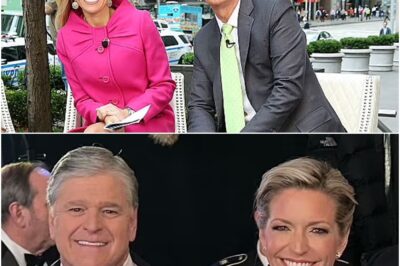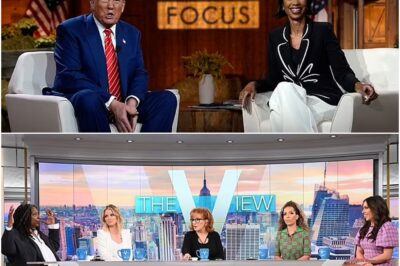
The U.S. Bureau of Economic Analysis has published its Personal Consumption Expenditure (PCE) Index, a crucial indicator of inflation, which revealed a modest increase of 0.3% last month as President Donald Trump initiates measures to address the economy.
Economists typically concentrate on the rate of inflation’s increase rather than its mere presence, as inflation generally trends upward over time. The recent data met expert predictions, as reported by The Center Square.
The index has risen by 2.5% compared to the same period last year, or 2.6% when food and energy costs are excluded. Although economists had expected a more significant reduction in inflation by this point, the current figures are still considerably lower than the high inflation rates observed during the Biden administration.
“Nothing in these data change the narrative much. Inflation appears to be gently slowing and that could give optimists hope that it will continue to do so,” stated Jason Furman, a Harvard economics professor and former advisor to President Barack Obama, on X. “However, core inflation remains above 2.5% — significantly higher than the 2.1% that analysts had predicted just a year ago.”
In January, personal income saw a rise of 0.9%, while personal spending declined and personal savings increased.
“This report presents a complex scenario: while the PCE aligns with expectations and is relatively positive, the drop in personal spending is concerning due to the significant decrease in consumption,” remarked Chris Zaccarelli, Chief Investment Officer for Northlight Asset Management in Charlotte, N.C., as noted by the outlet.
“Considering the optimism among investors regarding the economy—believing GDP will remain above 2% in the near future—and their concerns about persistent inflation, we may be facing a situation where the economy is deteriorating, yet inflation may not be as pressing an issue as currently perceived,” he added.
One of Trump’s primary campaign advantages has been…
One of the primary appeals of Trump’s campaign leading up to the November election was his commitment to controlling inflation and reversing the economic downturn experienced during the Biden-Harris administration. However, as noted by Semafor, achieving this goal may prove challenging.
Concerns are being raised by certain Republican lawmakers and CEOs regarding declining consumer confidence, as Trump’s suggested tariffs and federal workforce reductions place additional strain on a system already burdened by ongoing inflation and a weakening labor market. Stock market performance remains lackluster, and recent data indicates a growing pessimism among Americans regarding the economy, with increasing expectations of rising prices and diminishing job opportunities, as reported by the outlet on Friday.
While GOP leaders, including Trump, attribute the surge in prices to former President Joe Biden’s series of costly government stimulus measures, this narrative has a limited shelf life. Once Trump assumes full responsibility for the economy, his party will be compelled to address the wider economic implications of his policies.
Additionally, Trump faces the challenge of addressing the national debt, which is no small feat. “Inflation is a consequence of debt, and increasing debt will lead to heightened inflation,” remarked Senator Rand Paul (R-Ky.) recently.
Senator Thom Tillis, R-N.C., who is preparing for a particularly challenging reelection campaign in 2026, cautioned in an interview with Semafor that “the tariff strategy must be carefully calibrated, or it could exacerbate inflation.” He emphasized the importance of managing Trump’s proposed tariffs and avoiding tax increases; otherwise, it could lead to a significantly difficult economic cycle for the party.
News
“From International Sex Symbol to Private Heartbreak—The Tragic Final Act of Sophia Loren’s Legendary Life Is Leaving Fans in Tears”
Sophia Loren at 90: The Tragic Reality Behind a Hollywood Legend’s Final Years Sophia Loren, one of the last true…
“Internet MELTS Over Jenna Bush Hager’s Gorgeous Husband and Adorable Kids—Viewers Say ‘This Is America’s First Family 2.0!’”
Try Not to Gasp When You See Jenna Bush Hager’s Husband & Kids Jenna Bush Hager may be a familiar…
“Ainsley Earhardt Sparks Outrage with Daring Fashion Choice Just Days After Confirming Engagement to Sean Hannity—Critics Say She’s ‘Too Flashy for Fox!’”
Ainsley Earhardt’s Fashion Sparks Controversy Amid Engagement to Sean Hannity Fox News host Ainsley Earhardt, the newly engaged fiancée of Sean Hannity,…
“Fox News Power Couple EXPOSED: Ainsley and Hannity’s Hidden Engagement Finally Revealed—Here’s How They’re Making It Work!”
Ainsley Earhardt Opens Up About Long-Distance Engagement with Sean Hannity – “We Make It Work” Fox News host Ainsley Earhardt and Sean Hannity shocked…
“From Anchor to Aftershock: Ainsley Earhardt’s World Turned Upside Down by Husband’s Alleged Affair—Fox News Star Faces Ultimate Personal and Public Humiliation!”
Fox News Star Ainsley Earhardt SPLITS from Husband Amid Shocking Infidelity Scandal with Her Close Friend! Fox News host Ainsley Earhardt has…
“Harris Faulkner’s Savage Takedown of Whoopi and Sunny Goes Viral After Explosive Ratings Victory!”
Harris Faulkner Slams The View Hosts After Her Shocking Ratings Win—What She Really Thinks of Whoopi Goldberg and Sunny Hostin…
End of content
No more pages to load












